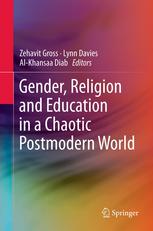

Most ebook files are in PDF format, so you can easily read them using various software such as Foxit Reader or directly on the Google Chrome browser.
Some ebook files are released by publishers in other formats such as .awz, .mobi, .epub, .fb2, etc. You may need to install specific software to read these formats on mobile/PC, such as Calibre.
Please read the tutorial at this link: https://ebookbell.com/faq
We offer FREE conversion to the popular formats you request; however, this may take some time. Therefore, right after payment, please email us, and we will try to provide the service as quickly as possible.
For some exceptional file formats or broken links (if any), please refrain from opening any disputes. Instead, email us first, and we will try to assist within a maximum of 6 hours.
EbookBell Team

4.0
6 reviewsThe immense changes that the world is undergoing in terms of globalization and migration of peoples have had a profound effect on cultures and identities. The question is whether this means shifts in religious identities for women and men in different contexts, whether such shifts are seen as beneficial, negative or insufficient, or whether social change actually means new conservatisms or even fundamentalisms. Surrounding these questions is the role of education is in any change or new contradiction. This unique book enhances an interdisciplinary discourse about the complex intersections between gender, religion and education in the contemporary world.
Literature in the social sciences and humanities have expanded our understanding of women’s involvement in almost every aspect of life, yet the combined religious/educational aspect is still an under-studied and often under-theorized field of research. How people experience their religious identity in a new context or country is also a theme now needing more complex attention. Questions of the body, visibility and invisibility are receiving new treatments. This book fills these gaps.
The book provides a strong comparative perspective, with 15 countries or contexts represented. The context of education and learning covers schools, higher education, non-formal education, religious institutions, adult literacy, curriculum and textbooks.
Overall, the book reveals a great complexity and often contradiction in modern negotiations of religion and secularism by girls and boys, women and men, and a range of possibilities for change. It provides a theoretical and practical resource for researchers, religious and educational institutions, policy makers and teachers.